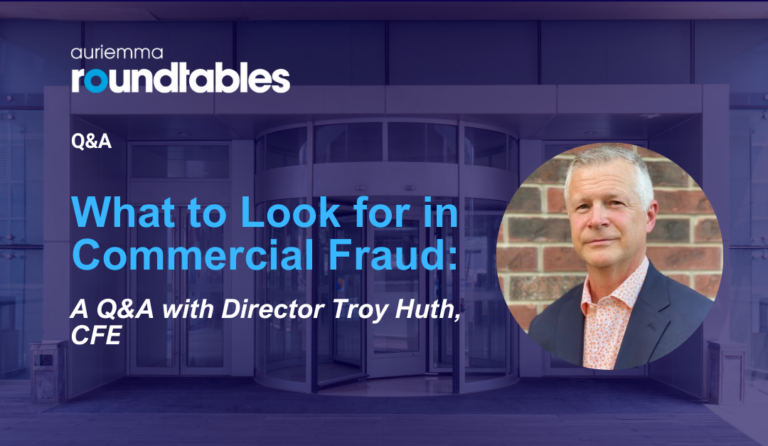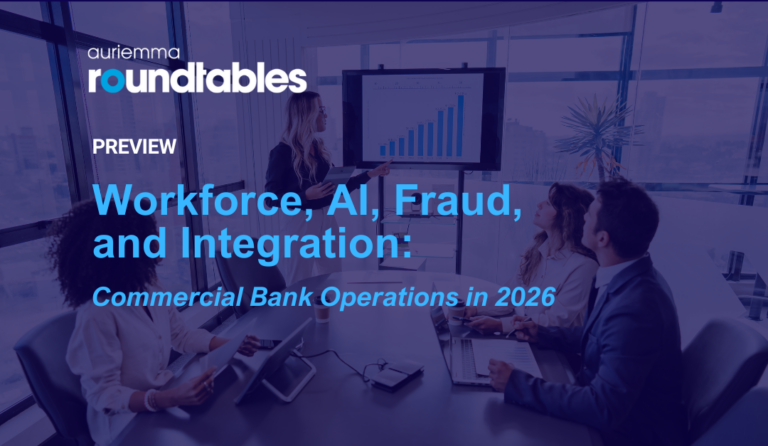June 14, 2024
Opinion: On Human Trafficking, Regulators May Force the Banking Industry’s Hand

Human trafficking makes headlines, but is the banking industry staying ahead of the traffickers? According to Troy Huth, director of Auriemma Roundtables’ BSA/AML Roundtable, banks should implement more stringent KYC protocols, as the cost of complacency can be high and may lead to regulatory mandates down the road.
By Troy Huth, Director, Auriemma Roundtables
Estimates vary, but human trafficking is believed to be a $150 billion crisis worldwide, with much of that money passing through legitimate financial institutions at some point. Under the Banking Secrecy Act, banks can and have been held liable for their role in depositing and transferring such funds: Last year, a major U.S. financial institution paid $365 million to settle lawsuits related to Jeffrey Epstein’s crimes.
Despite steady increases in the banking sector’s overall number of Suspicious Activity Reports (SARs), human trafficking and smuggling reports have been mostly flat since the category was introduced in 2018. In a typical year, financial institutions only flag about 2,000 total transactions as potentially tied to human trafficking. Meanwhile, the overall number of individuals prosecuted for human trafficking-related offenses more than doubled between 2011 and 2021. In other words, while enforcement is up, investigations do not seem to originate from SARs.
This decoupling suggests human trafficking is underreported in SARs. In some cases, it’s missed altogether. However, because there are many components of human trafficking financial activity that overlap with more general financial crimes, like fraud and money laundering, it is more likely that it is not correctly categorized in the reporting process.
Regulators May be Poised to Move in.
Meanwhile, Congress seems poised to consider increased scrutiny of financial institutions’ role in helping to police human trafficking-related transactions. The End Banking for Human Traffickers Act of 2024, proposed in January, has since moved to the House Committee on Financial Services. It would increase regulatory scrutiny around human trafficking and money laundering, including:
- Mandate federal banking regulators to collaborate with law enforcement and financial institutions to prevent the financial system’s exploitation for human trafficking.
- Push for more cooperation between the private sector, law enforcement, and financial crime experts.
- Require the Interagency Task Force to Monitor and Combat Trafficking in Persons to evaluate current anti-money laundering efforts by financial institutions, and to provide recommendations for Congress and regulators to strengthen these programs to combat human trafficking more effectively.
Leveraging Banking Controls to Spot Human Trafficking
BSA and anti-money laundering teams can stay ahead of potential regulatory action by focusing oversight efforts on trafficking-oriented financial transactions, such as:
- Payroll checks cashed with most funds retained or redeposited by the employer, detectable by financial institutions through paystubs and payroll records.
- Payments to unlicensed or non-compliant employment or student recruitment agencies.
- Common signers or custodians across unrelated businesses or personal accounts, or multiple accounts using the same address, phone number, or employment details.
- Training retail banking associates to spot behaviors that may indicate human trafficking.
Banks may already employ many of these measures as anti-fraud prevention, while other steps would be manageable and fairly low impact to overall operations. Using them with an eye toward trafficking prevention would help to satisfy future regulatory mandates.
About Auriemma Roundtables’ BSA/AML Roundtable
Auriemma Roundtables’ BSA/AML Roundtable provides a platform for banks and financial institutions to share knowledge, best practices, and real-world cases, allowing participants to learn from each other’s experiences in detecting and preventing illegal financial activity, including human trafficking-related transactions.
This Roundtable facilitates the sharing of data and intelligence across institutions, enhancing their collective ability to detect and disrupt trafficking networks by identifying broader patterns that may not be visible through isolated data points.



